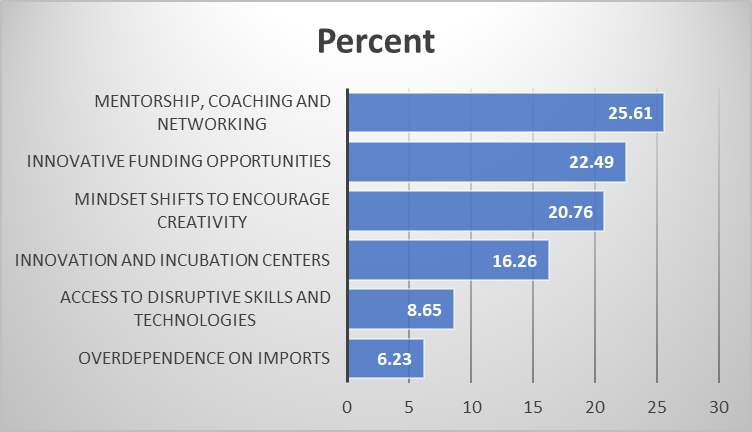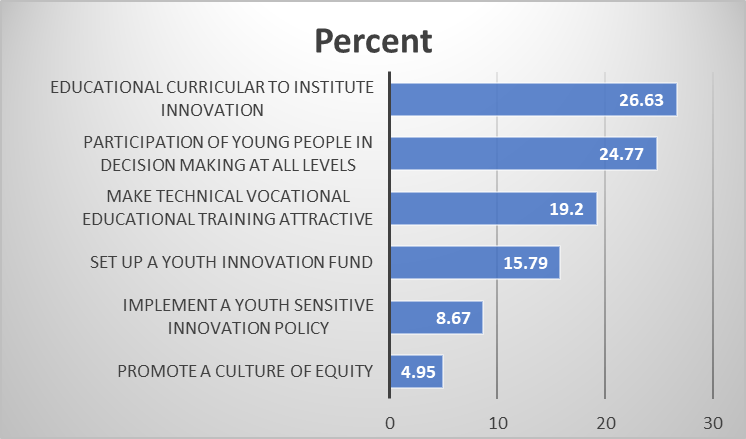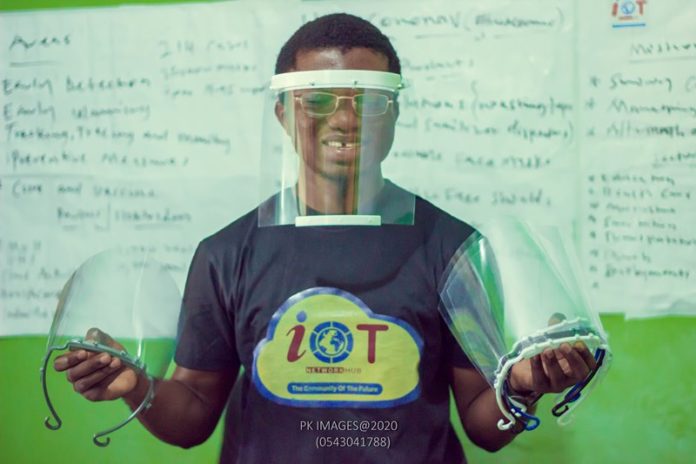Young people have called on stakeholders including those in academia, innovation hubs, industry, government and donors to support them, particularly with more mentorship, coaching and networking opportunities. This according to the youth, will enable them expand their innovation space to contribute meaningfully towards sustainable development. The youth made the call during the United Nations’ 3rd edition of the Youth Impact Series hosted online by the United Nations Development Programme (UNDP) on the theme “Expanding the Youth Innovation Space”.
To overcome major challenges, the youth identified the need to address predominant stereotypes especially for girls; support for young people to improve their soft skills to innovate; awareness creation on youth policies to address communication gaps, and provision of an enabling environment including support on patenting innovations.

Speaking during the panel discussion on the theme, Zulaiha Dobia, a panelist and Co-founder at Divaloper, noted that nurturing young people and being role models especially for girls are critical for youth development in the innovation space. She also underscored the need to intensify grassroot public sensitization on youth mentorship and coaching.
“Young people should be guided to enable them reimagine themselves to improve their knowledge and skills on current trends to courageously venture into new territories in innovation and entrepreneurship to become economically self-reliance”.
The panel encouraged young innovators to also build their soft skills in order to thrive in their innovation space. The panelists include Mr. Oliver Boachie, Special Advisor to the Minister of Environment; Dr. Gordon Kwesi Adomdza of the Ashesi University Design Lab; Mr. Joshua Opoku Agyeman, President of Internet of Things Network Hub; Zulaiha Dobia Abdullah, Co-founder for Divaloper; and Chineyenwa Okoro Onu, a Social Entrepreneur, an Environmentalist and an Enabler. The session was moderated by Mr. Emmanuel Kwasi Afriyie, an astute journalist with interest in business development.
“To thrive in this competitive world, you must build a good communication, digital, negotiation, and networking skills to utilize existing technologies to actively engage potential partners and supporters”, noted Chineyenwa Okoro Onu, Founder of ‘Waste’ or Create Hub, an innovation and creative center.
The participants at the Youth Impact Series also emphasized the importance of teaching and exposing young people from early ages to think and act innovatively, to enable them start generating ideas to solve everyday challenges around them. This, according to them, will aid the youth actualize these ideas into prototypes at a very early stage in life, which can be scaled up as marketable innovation solutions.
“There is a growing need for academia, industry and government to support shifts in knowledge acquisition, mindset and skill sets of young people to make transformational impact in national development”, reiterated Dr. Gordon Kwesi Adomdza of the Ashesi University Design Lab.
On his part, Mr. Oliver Boachie, the Special Advisor to the Minister for Environment, noted that, the Government of Ghana, through the Ministry of Environment, Science and Technology (MESTI) is in the process of establishing an innovation and research fund; which will further support innovation centres and Science Technology and Innovation (STI) initiatives in the country. He added that MESTI is also collaborating with academia, the public and private sector to offer more support to young people.
In terms of policy shift, suggestions from the participants include policies relating to education curricular across board to institute innovation; policies on participation of young people in decision making; and attractiveness of vocational education.

The ‘Youth Impact Series” is an initiative of the United Nations in Ghana coordinated by the United Nations Population Fund (UNFPA) to increase young people’s awareness on prevention, protection and response to COVID-19. The series often attract participation from Ghana, across the African continent and worldwide. This 3rd session gathered 345 participants from 17 countries.
Source: Daily Mail GH





